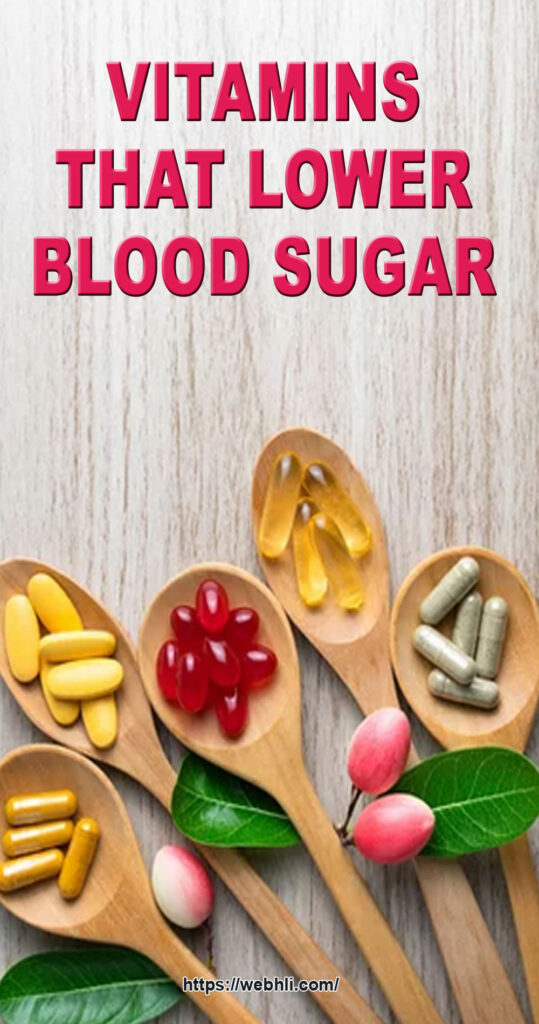
Vitamins that are found beneficial in the treatment of diabetes are as below -
Vitamin A - Patients suffering from this disease are unable to convert beta-carotine to vitamin A. Therefore it is necessary to take the supplement of this vitamin. A dose of 15000 IU on alternate days is considered sufficient by some authorities.
Vitamin B complex - The B group Vitamins are valuable in the treatment of diabetes. Despite an adequate intake of these vitamins, patients often have unusually small amounts of vitamin B in their blood because of high urinary loss of exhibit symptoms of vitamin B deficiency. Marked clinical improvement has been reported in the diabetic patients with only 16000 units of daily supplements of vitamin B complex. Because these vitamins help reduce blood fat and cholesterol, they should be generously given to the patients.
Check out these related articles, too:
How to Look after Your Skin Once You Have Diabetes
The Skin Problems Resulting From Type 2 Diabetes
How To Stop Diabetes From Stealing Your Vision!
Diabetes Natural Home Remedies – Worth a Try?
Can Magnesium Prevent Diabetes?
Zinc Shown to Promote Insulin Production In Diabetics
Prevent Side Effects From Diabetes Drugs
Why You Should Stop Taking Drugs for Your Diabetes
What Does It Mean To “Reverse Diabetes?”
Vitamin B1 (Thiamine) - Of the various vitamins of the B group, B1 and B6 (pyridoxine) are very useful in the treatment of diabetes. Diet insufficient in B1, often leads to the development of neuritis, which is relieved as soon as large amounts of this vitamin are consumed. B1 is believed to be particularly helpful in preventing damage to the brain during diabetic acidosis. The greater the insulin requirement more is the requirement for vitamin B1, B5 and B8.
The natural sources of thiamine are wheat germ, brewer's yeast, the outer layers of rice, wheat and other whole grain cereals, nuts, peas, lime, legumes, pulses, dark green leafy vegetables, banana and apple. Those of Vitamin B5 are wheat germ, whole grain bread, green vegetables and peanuts. B8 is found in brewer's yeast, rice germ, rice bran, rice polishing and peanut butter.
Vitamin B6 (pyridoxine) - When diet is inadequate in B6 and essential amino acid, tryptophan is converted into a substance known as xanthurenic acid. It has been shown in clinical experiments that xanthurenic acid tends to damage the pancreatic tissue.
Patients who have been given 50 mg of B6 daily have shown a remarkable decrease in urinary xanthurenic acid. In one case, the quantity dropped almost 90 percent the first day. Total absence of urinary xanthurenic acid amongst those who continued with a daily dosage of 10 to 20 mg of this vitamin indicated that none was being formed in the body. Patients are thus very much helped by a liberal intake of B6. The chief natural sources of pyridoxine are brewer's yeast, milk, cereals, legumes, green leafy vegetables and carrot.
Vitamin C - Vitamin C is also helpful in the treatment if this disease. Because of stress, urinary losses and destruction by artificial sweeteners, the vitamin C requirement is generally high in diabetic patients. Large amounts of this vitamin sometimes bring good results. Natural insulin output increases in patients with supplementary doses of vitamin C.
The natural sources of vitamin C are dried Indian gooseberry (amla), citrus fruits, green leafy vegetables, sprouted Bengal gram and green grams.
Vitamin E - This vitamin reduces significantly the devastating vascular damage accompanying diabetes. This vitamin helps diabetics decrease their insulin requirements. It would be advisable for a person suffering from this disease to take a daily dose of 200 IU of this vitamin for a fortnight at a time.
The natural sources of this vitamin are wheat or cereal germ, fruits and green leafy vegetables, whole grain products, milk and all whole raw or sprouted seeds. Other rich sources of vitamin E are cold pressed crude vegetable oils, especially sunflower seeds, safflower, and soy bean oils, raw and sprouted seeds and grains, almond, alfalfa, lettuce, human milk etc.
Good Energy Food for Diabetics
10 Simple Food Concepts Every Person Living With Diabetes Should Know
Making Cheesecake For Diabetics
Enjoy the Taste and Benefits of Diabetic Foods
Will The Mulberry Leaf Help Your Diabetes?
5 DIABETIC FRIENDLY SALADS Some Tasty
DIABETIC LEMON COCONUT COOKIES Some Tasty
Read information about Diabetes Herbal Treatment [http://www.diabetes-natural-treatment.com]. Also read about Diabetes Risk Factors [http://www.diabetes-natural-treatment.com/diabetes-risk-factors.htm].
Article Source: http://EzineArticles.com/4345002

 Protected by Patchstack
Protected by Patchstack